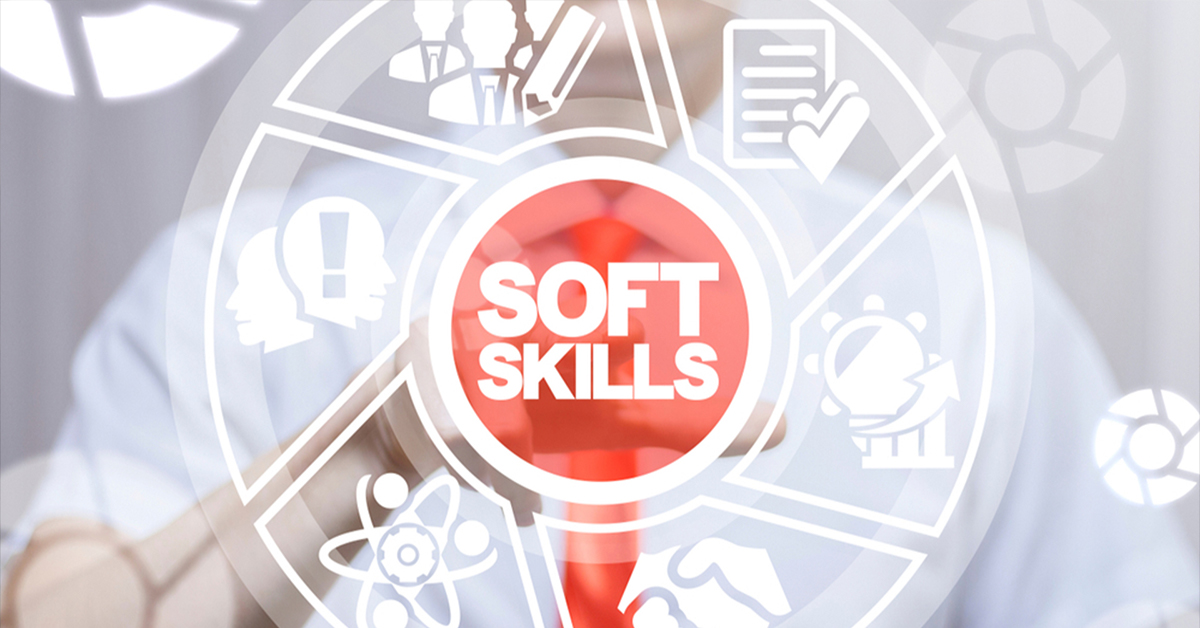In today's competitive market, professionals must constantly evolve to stay ahead. One of the critical aspects that contribute to success in the workplace is the development of soft skills. These abilities, ranging from effective communication to teamwork, are essential for individuals to thrive and contribute positively to their organisations. In this blog, we will explore what soft skills in the workplace are, their importance, the latest tools and techniques for development, and how DMU Dubai is fostering these skills in its students.
What are Soft Skills in the Workplace?
Soft skills encompass a range of interpersonal abilities that enable individuals to collaborate effectively with others, solve problems, and adapt to new situations. The following are the most important soft skills in the workplace:
- Interpersonal Abilities: Building strong relationships with colleagues, clients, and stakeholders.
- Communication Skills: Conveying ideas and information verbally and in writing.
- Emotional Intelligence: Understanding and managing emotions and empathising with others.
- Adaptability: Embracing change and remaining flexible in the face of evolving circumstances.
- Problem-Solving: Identifying issues and devising innovative solutions.
- Time Management: Prioritising tasks and managing time efficiently.
- Leadership: Guiding and inspiring others to achieve a common goal.
The Importance of Soft Skills
Soft skills are critical to success in the workplace for several reasons:
- Enhancing productivity: Employees with strong and soft skills can streamline workflows, make better decisions, and contribute more effectively to their organisations.
- Facilitating teamwork and collaboration: Effective communication and interpersonal skills enable individuals to work harmoniously with others, fostering a positive work environment.
- Improving customer service: Employees with well-developed soft skills are better equipped to understand and respond to clients' needs, increasing satisfaction and loyalty.
- Boosting employee retention: Companies that invest in soft skills training are more likely to retain top talent, as employees feel valued and supported in their professional growth.
Developing a Soft Skills Development Plan
- Identifying Areas of Improvement: Begin by assessing your current skill set and determining which soft skills require the most attention.
- Setting Goals and Objectives: Establish specific, measurable, achievable, relevant, and time-bound (SMART) goals for your soft skills development.
- Choosing the Right Soft Skills Training: Research and select training programs that align with your goals and learning style, such as workshops, webinars, or mentoring.
- Implementing a Consistent Learning Approach: Commit to regular practice and reflection, seeking feedback from peers and mentors to improve continuously.
Challenges in Developing Soft Skills for Growth
Let's look at some common challenges people face when developing soft skills.
- Traditional Learning Methods Not Enough: Traditional learning methods like lectures, textbooks, and classroom training may not be sufficient to develop soft skills. It is more about practical application and experience than theoretical knowledge. Therefore, you must seek opportunities to practice your soft skills in real-life situations.
- Busy Schedules Can Make it Difficult to Prioritize Soft Skill Development: People often have busy schedules that leave little time for anything other than work and personal responsibilities. It can make it challenging to prioritise soft skill development. However, allocating time and effort towards building these skills is essential, as they are crucial for professional success.
- Lack of Opportunities to Practice Soft Skills: Soft skills are developed through practice, but only some can. Sometimes, people may work in environments that do not allow specific soft skills development. For example, if someone works in an isolated role with little interaction with others, they may find it challenging to develop skills like communication and teamwork.
Tools for Overcoming Soft Skills Development Challenges

- Online Courses and Webinars: Access a wealth of resources from experts in the field, often with the flexibility to learn at your own pace. You can often interact with instructors and other students through discussion boards and online forums.
- Interactive Workshops and Seminars: Engage in hands-on learning experiences, often with opportunities for group discussions and exercises to practice new skills. Additionally, you can receive immediate feedback from instructors and peers to help improve your performance.
- Self-Paced Learning Modules: These modules are often interactive, engaging, and designed to help you practice and apply your learning. They can be completed on time, making them ideal for busy professionals who want to improve their soft skills without sacrificing work or family commitments.
- On-the-job Training: Gain valuable real-world experience by applying new soft skills in your daily work and learning from colleagues and supervisors. Moreover, you can tailor your training to your specific job responsibilities and career goals.
- Team-building Activities: Participate in activities designed to foster collaboration, communication, and trust among team members. Additionally, you can develop leadership and problem-solving skills while having fun and building relationships with your colleagues.
- Mentoring and Coaching Programs: Seek guidance from experienced professionals who can provide valuable insights and advice to help you grow and develop your soft skills. Furthermore, you can receive personalised attention and support to address your unique challenges and goals.
- Building a Professional Online Presence: Creating a professional online presence can help showcase your skills, experience, and personality to potential employers, clients, and collaborators. Platforms like LinkedIn, Twitter, and Instagram provide opportunities to share your work, engage with others, and build your online reputation.
- LinkedIn Groups and Discussions: LinkedIn is a valuable platform for professional networking and development. Joining relevant groups and participating in discussions can help you learn from others, share your expertise, and build your online presence.
How to Improve Leadership Skills in the Workplace
- Set Clear Expectations and Goals: As a leader, you must define clear expectations and goals for yourself and your team. It will help ensure everyone is working towards a common objective and can help increase productivity and efficiency.
- Communicate Effectively and Frequently: Effective communication is crucial for good leadership. You should frequently communicate with your team members and be transparent about goals, expectations, and feedback. It can help build trust and create a more positive work environment.
- Provide Constructive Feedback and Recognition: Providing constructive feedback and recognition is critical to leadership. You should acknowledge good work and provide constructive feedback to help team members improve. It can help motivate team members and can lead to increased productivity.
- Foster a Positive and Inclusive Workplace Culture: Creating a positive and inclusive workplace culture is essential for good leadership. You should encourage teamwork, respect diversity, and promote a positive work-life balance. It can help create a more productive and enjoyable work environment.
- Lead by Example: Leading by example is an integral part of leadership. You should model the behaviour you expect from your team members and demonstrate a strong work ethic. It can help motivate team members and can lead to improved performance.
- Effective Teamwork and Collaboration: Encouraging collaboration and teamwork is essential for good leadership. You should promote communication and encourage team members to work together to achieve common goals. It can lead to improved productivity and better problem-solving.
How to Develop Soft Skills at DMU Dubai

Integrated Curriculum
DMU Dubai emphasises developing soft skills through its curriculum, which:
- Focuses on real-world application: Courses incorporate practical examples and case studies to help students apply their newfound skills in real-life situations.
- Group projects and collaborative learning: Students work together on assignments and projects, fostering teamwork, communication, and problem-solving abilities.
Extra-curricular Activities
DMU Dubai encourages students to participate in a range of activities outside the classroom, such as:
- Clubs and societies: Engaging in various clubs and societies helps students develop their leadership, communication, and organisational skills.
- Community service and volunteering opportunities: Giving back to the community through service projects cultivates empathy, teamwork, and a sense of civic responsibility.
Career Services and Support
DMU Dubai offers a variety of resources to help students develop their soft skills and prepare for their future careers, including:
- Workshops and seminars: These events are organised to provide students with valuable knowledge and skills related to career development, covering topics such as interview techniques and networking.
- Networking events: Students can connect with industry professionals and alums, practising their communication and interpersonal skills professionally.
Programmes
DMU Dubai offers degrees designed to develop essential soft skills in students to prepare them for the dynamic workforce of the future.
- Business Management (BA): This Business Management programme focuses on developing students' business and management skills, including soft skills necessary for corporate success.
- Masters of Business Administration (MBA): This MBA programme provides students with a deeper understanding of business practices and develops their soft skills to become influential leaders in the business world.
- Bachelor of Science (BSc) in Psychology: This Psychology programme at DMU Dubai focuses on developing students' understanding of human behaviour, including soft skills such as empathy, active listening, and emotional intelligence, which are essential in counselling and human resources.
- Human Resources Management (MA): This Human Resources (HR) degree can also help develop soft skills. It focuses on understanding human behaviour and how it impacts organisations, developing skills in communication, leadership, and conflict resolution.
Conclusion
Soft skills in the workplace are essential for individual and organisational success. Professionals can unlock their full potential by understanding their importance and implementing a development plan. DMU Dubai's commitment to fostering these skills in its students makes it a leader in nurturing the leaders of tomorrow. The university equips its students with the soft skills necessary to excel professionally through its integrated curriculum, extra-curricular activities, programmes, and career services.
De Montfort University Dubai
Dubai International Academic City
Post Box: 294345
Dubai, UAE
About DMU
Useful Links
© Copyright DMU Dubai 2024

